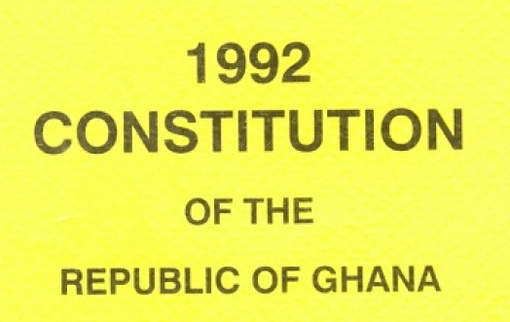
The office of the president, John Mahama has established a Constitutional Review Committee to fulfill his commitment to implementing the Constitutional Review Process.The committee composed of distinguished experts and professionals, will review Ghana’s 1992 Constitution and recommend amendments to enhance democratic governance.
The committee’s membership includes;Prof. H. Kwasi Prempeh – Chairman, Justice Sophia Adinyirah – Member, Prof. Kwame Karikari – Member, Mrs. Charlotte Osei – Member, Dr. Godwin Djokoto – Member, Ibrahim Tanko Amidu – Member, Dr. Esi Ansah – Member andDr. Rainer Akumperigeya – Secretary.
The committee has been tasked with identifying gaps and challenges in the implementation of previous constitutional review works, including efforts by the 2010 Constitution Review Commission and the 2023 Constitution Review Consultative Committee.
The other mandate of the Constitutional Review Committee will be to engage stakeholders to gather views on proposed amendments to the constitution and provide actionable recommendations for addressing existing governance issues.The committee is expected to deliver its recommendations for constitutional amendments within five months for consideration by the government.
The establishment of yet another Constitutional Review Committee under the leadership of H.E. John Mahama is a commendable step toward addressing the lingering gaps in Ghana’s 1992 Constitution.
However, the significance of this initiative will only be realised if it goes beyond the cyclical pattern of reviews and reports that have, in the past, resulted in little to no tangible implementation. Both the 2010 Constitution Review Commission (CRC) set up by John Atta Mills government and the 2023 Constitution Review Consultative Committee (CRCC) established by the Nana Addo regime were all well-meaning efforts that promised to bridge critical gaps in governance.
Unfortunately, their commendable work endedwithout implementation of their reports, as thereports were left to gather dust on shelves. This cycle must end. The current administration, led by President John Mahama, must seize this moment to ensure the implementation of actionable recommendations that emerge from this new committee.
It could be recalled that the 2010 Constitution Review Commission was heralded as a landmark effort to refine and strengthen Ghana’s democratic framework. Chaired by the late Professor Albert Kodzo Fiadjoe, the Commission engaged extensively with the public, hosting consultations across the country and receiving over 83,000 submissions.
The final report, presented to then-President John Evans Atta Mills in 2011, included critical recommendations, such as strengthening local governance by allowing Metropolitan, Municipal, and District Chief Executives (MMDCEs) to be elected rather than appointed, enhancing the transparency of the Electoral Commission’s operations, and curtailing excessive presidential authority, particularly in appointing heads of independent institutions and regional ministers.
Regrettably, while the Professor Albert Kodzo Fiadjoe’s Commission report led to the drafting of a Constitutional Amendment Bill in 2012, the process stalled amid political transitions and a lack of political will. The recommendations, though valuable, were ultimately sidelined.
In 2023, another effort was made with the formation of the Constitution Review Consultative Committee (CRCC). Its mission was to consult stakeholders and revisit unresolved constitutional issues. However, like its predecessor, the consultative process fell short of driving substantial reform. A lack of commitment to follow through with implementation rendered this initiative another missed opportunity.
This time, it must be different. The onus lies on President Mahama and his administration to ensure that the recommendations of the Prempeh-led committee are not only acknowledged but acted upon. Ghana’s democratic evolution depends on closing critical gaps in the 1992 Constitution.
President Mahama has emphasised the expertise and dedication of the committee members. Now, he must demonstrate equal commitment by ensuring that the committee’s recommendations are not merely reviewed but systematically implemented.
Additionally, the government must engage citizens throughout the process, ensuring that constitutional reforms reflect the aspirations of Ghanaians
The formation of the Prempeh-led Constitutional Review Committee is a renewed opportunity to address Ghana’s constitutional deficiencies. However, the success of this initiative will depend not on the quality of its recommendations but on the government’s resolve to act on it.
The post Editorial: New Constitutional Review Committee’s Recommendations Must Be Implemented appeared first on The Ghanaian Chronicle.
Read Full Story














Facebook
Twitter
Pinterest
Instagram
Google+
YouTube
LinkedIn
RSS